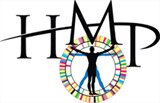Over the last few years, I’ve found that the same question keeps cropping up again and again at meetings whenever we talk about direct-to-consumer genetic tests: “How many people are actually buying these tests?”. And because the companies (for whatever reason) have thus far been rather reticent about telling us how many kits they’ve sold, until recently the answer has simply been “I don’t know”. Yet if we’re going to talk about their sociological impact, their knock-on effect on health systems, and re-writing our regulatory laws around them, surely this is something we ought to have a handle on.
So… how many people have actually bought these tests then?
The problem is how to go about estimating a market size when there is precious little data, and the companies are all privately owned? First, we teamed up with some enthusiastic MBA students, who came up with the simple but elegant idea of using website hits as a proxy for market share. Using Compete.com, we found that the ‘big three’ – 23andMe, deCODEme and Navigenics – together had just over 662,000 unique hits during 2009, of which 23andMe received the lion’s share at nearly 80%. (They received fairly constant internet traffic throughout the year, with an average of around 43, 4 and 8 thousand unique visitors per month respectively). Pathway had only just launched when we did the analysis, resulting initially in a large transient spike in internet traffic, so we left it out.
Second, fortunately for us, in October 2009 23andMe stated publicly that their database contained “30,000 active genomes”, which were either sold or given away at a substantially reduced rate. (This rose to 50,000 in June 2010, but that doesn’t really alter the calculations). So, assuming a steady rate of uptake, this equates to perhaps 15,000 genome scans sold during 2009. Combining this with the internet traffic data, we estimate in this month’s Genetics in Medicine [Wright CF, Gregory-Jones S. Genet Med. (2010) 12: 594] that around 20-30,000 genome scans were sold in 2009, at a cost of between $300-1,000, which probably equates to a commercial value of around $10-20 million.
Is that really true?
Obviously there are substantial margins of error in any estimate made from such limited data, and caveats include the fact that we only considered tests sold during 2009 and we ignored (as much as possible) non-medical tests like paternity and ancestry testing. Nonetheless, this seems like a realistic ballpark figure, and importantly it is neither millions of people, nor hundreds of millions of dollars. We don’t know (yet) how big the market for whole genome sequences will be, or what impact preconception carrier testing might have, but at the moment it is clear that the market for DTC genetic testing is much smaller than expected or than one might surmise from all the media attention. Which means that the alleged harms to consumers, and the reputed knock-on effects on health systems, must necessarily be limited.
Nonetheless, I would dearly love to hear from any DTC genomics companies out there willing to share some more concrete data…
 Here at Genomes Unzipped we love genomes. But there is more to the world of biology than genomics, there is more to understanding your own body than personal genetic tests. To understand the human body, you have to look not just at the DNA present, but also at what genes are turned on in what tissues, what cells are being produced in what numbers, what compounds are circulating in your blood, and even what other organisms are also living on your body. However, for the interested consumer the non-genetic aspects of personalized medicine have generally been less readily accessible than the genetic aspect. This post discusses a few companies that are trying to fill this gap, and who are looking to the general public to crowd-source funding for their products.
Here at Genomes Unzipped we love genomes. But there is more to the world of biology than genomics, there is more to understanding your own body than personal genetic tests. To understand the human body, you have to look not just at the DNA present, but also at what genes are turned on in what tissues, what cells are being produced in what numbers, what compounds are circulating in your blood, and even what other organisms are also living on your body. However, for the interested consumer the non-genetic aspects of personalized medicine have generally been less readily accessible than the genetic aspect. This post discusses a few companies that are trying to fill this gap, and who are looking to the general public to crowd-source funding for their products. RSS
RSS Twitter
Twitter
Recent Comments